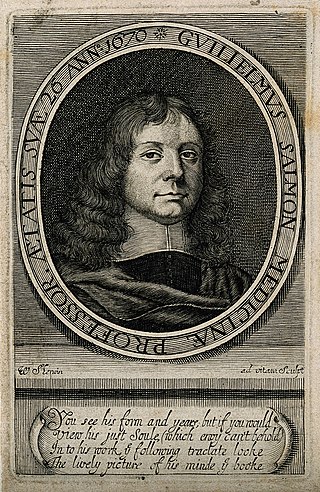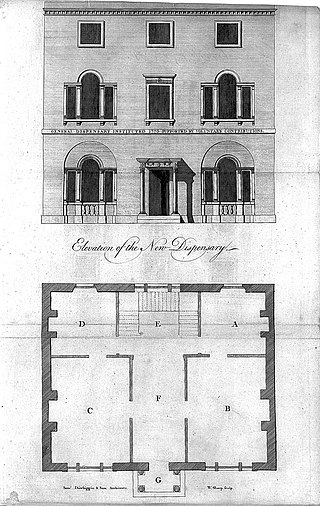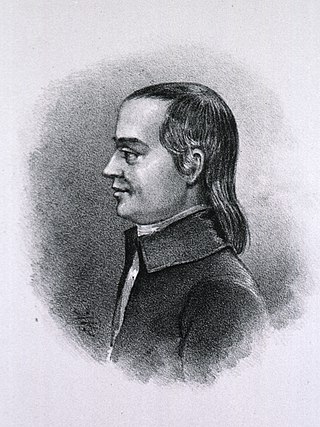
Elizabeth Garrett Anderson was an English physician and suffragist. She is known for being the first woman to qualify in Britain as a physician and surgeon and as a co-founder and dean of the London School of Medicine for Women, which was the first medical school in Britain to train women as doctors. She was the first female dean of a British medical school, the first woman in Britain to be elected to a school board and, as mayor of Aldeburgh, the first female mayor in Britain.

The Worshipful Society of Apothecaries of London is one of the livery companies of the City of London. It is one of the largest livery companies and ranks 58th in their order of precedence.

Apothecary is an archaic English term for a medical professional who formulates and dispenses materia medica (medicine) to physicians, surgeons and patients. The modern terms 'pharmacist' and 'chemist' have taken over this role.

Thomas Joseph Pettigrew, sometimes known as "Mummy" Pettigrew, was a surgeon and antiquarian who became an expert on Ancient Egyptian mummies. He became well known in London social circles for his private parties in which he unrolled and autopsied mummies for the entertainment of his guests.
The conjoint was a basic medical qualification in the United Kingdom administered by the United Examining Board. It is now no longer awarded. The Conjoint Board was superseded in 1994 by the United Examining Board, which lost its permission to hold qualifying medical examinations after 1999.

The Public Dispensary of Edinburgh was the first free-of-charge hospital in Scotland.

William Salmon (1644–1713) was an English empiric doctor and a writer of medical texts. He advertised himself as a "Professor of Physick". Salmon held an equivocal place in the medical community. He led apothecaries in opposing attempts by physicians to control the dispensing of medicines, and was derided by physicians as "the King of the Quacks". He has been described as "a brilliant publicist, but not much of a philosopher".

A public dispensary, charitable dispensary or free dispensary gives advice and medicines free-of-charge, or for a small charge.

Edward Collis Berdoe was an English physician, anti-vivisectionist and writer. He studied and wrote on the works of Robert Browning. He also campaigned against medical experiments on human patients and animals.

John Coakley Lettsom FRS was an English physician and philanthropist born on Little Jost Van Dyke in the British Virgin Islands into an early Quaker settlement. The son of a West Indian planter and an Irish mother, he grew up to be an abolitionist. He founded the Medical Society of London in 1773, convinced that a combined membership of physicians, surgeons and apothecaries would prove productive. As the oldest such in the United Kingdom, it is housed in London's medical community at Lettsome House, Chandos Street, near Cavendish Square. Lettsom was its mainstay, as founder, president and benefactor.

The University of Sheffield Medical School is a medical school based at the University of Sheffield in Sheffield, South Yorkshire, England. The school traces its history back to at least 1828. It operated independently until its merger with Firth College and Sheffield Technical School in 1897, and is now an integral part of Sheffield's Faculty of Medicine, Dentistry and Health.
Edward Harrison was a British physician who described Harrison's groove. He studied in London under John and William Hunter, and in Edinburgh where he received his doctorate in 1784. He practised in Horncastle, Lincolnshire for 30 years, founding the Horncastle Dispensary and the Lincolnshire Medical Benevolent Society. He was an advocate of medical reform, reporting on the lack of regulation of physicians, surgeons and apothecaries, and suggesting that regulation of education and licensing was needed. This plan was thwarted by opposition from the Royal College of Physicians. He also founded the first infirmary for spinal diseases in London in 1837. He was a member of the Royal Society.
A medicinal jar, drug jar, or apothecary jar is a jar used to contain medicines. Ceramic medicinal jars originated in the Islamic world and were brought to Europe where the production of jars flourished from the Middle Ages onward. Potteries were established throughout Europe and many were commissioned to produce jars for pharmacies and monasteries. They are an important category of the Dutch and English porcelain known as Delftware.

The history of pharmacy as a modern and independent science dates back to the first third of the 19th century. Before then, pharmacy evolved from antiquity as part of medicine. Before the advent of pharmacists, there existed apothecaries that worked alongside priests and physicians in regard to patient care.
Sir John Colbatch was an English apothecary and physician. Beginning as an apprentice, rising through freeman to master apothecary in the Worcester Mercer's Company, he went to London in the early 1690s.
The Triple Qualification (TQ) was a medical qualification awarded jointly by the Royal College of Surgeons of Edinburgh, the Royal College of Physicians of Edinburgh and the Faculty of Physicians and Surgeons of Glasgow between 1884 and 1993. Successful candidates could register with the General Medical Council (GMC) and practise medicine in the United Kingdom. It was a route used by international medical graduates and those unable to gain entry to university medical schools, which included women in the late 19th century and refugee medical students and doctors throughout the 20th century.

Rose v Royal College of Physicians, also known as The Rose Case, was a 1703 British landmark court case between the Royal College of Physicians (RCP) and William Rose, a Liveryman of the Society of Apothecaries. Rose had treated a John Seale, who complained about his treatment to the RCP, who brought a successful court action against Rose in 1703. The Society of Apothecaries and Rose successfully appealed against this judgement. However, this did not change medical practice but merely legitimised what apothecaries were doing already and confirmed the "status quo". It did, nevertheless, symbolize the decline in the College's growing legal monopoly over who practises medicine. The case was ultimately seen as not one between a College and one individual, but one between one powerful College against one powerful Society.

The General Dispensary, Aldersgate Street, was a London dispensary which provided outpatient treatment and home-visiting for sick adults and children.

Samuel Powel Griffitts was an American physician, widely regarded as the founder, in 1786, of the Philadelphia Dispensary. He was an early member of the American Philosophical Society, elected in 1785.














